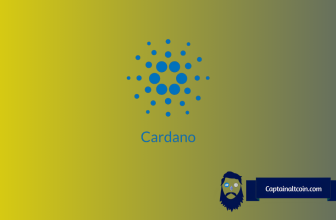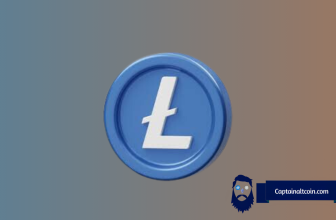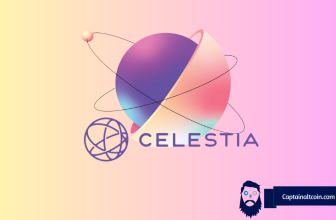
Micropayment-focused transaction processing company SatoshiPay announced that they’ve started operating their own cluster of Stellar Lumens network validating nodes.
As with every other node on the network, these devices will be tasked with maintaining database of all past ledger operations. The nodes will also have publicly accessible history archives and utilize the fastest available API for querying the ledger, explained the SatoshiPay announcement.
SatoshiPay explained how they understand the importance of the validator network of Stellar Consensus Protocol being diversified and reliable. Such a setup will increase overall Stellar network decentralization, improve XLM adoption, and positively influence security and immutability of the Stellar ledger.
While they previously held “light” nodes, typical for most of the Stellar network, the company has now expanded their line-up with “full”, 700 GB-sized Stellar verifying nodes. Each node will have the entire Stellar ledger stored on itself, representing the full history archive of XLM transactions.
The company will run these devices from locations in Iowa (US), Frankfurt (DE) and Singapore (SG). The nodes were intentionally spread out across various continents:
“Most developers building Stellar-based applications rely on Stellar.org’s Horizon API servers to interact with the ledger. These servers are hosted in the US, meaning response times from other parts of the world are relatively slow. By adding servers in Europe and Asia, SatoshiPay now offers faster alternatives, resulting in dramatically increased performance,” explains SatoshiPay.
- IOTA IRI 1.6.0 introduces local snapshots and other important improvements
Continuing its announcement-heavy week, IOTA communicated that they will finally be going with the long-awaited local snapshots feature. The launch of the feature was announced via the project’s official Medium blog in a succinct post written by Jakub Cech, Product Owner @IOTA. The feature is set to be introduced with the IRI (IOTA node software) 1.6.0 and has been meticulously tested during the previous several months.
Local snapshots are expected to bring “faster synchronization, lower system resource requirements, and no more waiting for global snapshots to prune the database” to IOTA node owners. The feature is meant to address the issues with scalability that IOTA blockchain inevitably started facing with its rise in popularity.
As more developers and users jump on board the Tangle, the database size becomes exponentially bigger, thus limiting nodes that have limited hardware resources (namely storage/processing power). IOTA previously utilized global snapshots to empty the node database; such snapshots became increasingly less practical as for one to take place, the network had to stop the coordinator, generate a snapshot state, give the community time to verify generated data and restart the coordinator. It’s easy to see why this process would become slower as IOTA’s Tangle becomes bigger.
To verify transactions and take part in IOTA’s consensus, it is only necessary to know the recent history of pending transactions and the current state (balances) of the ledger. Thanks to the introduction of local snapshots, node operators will be able to sync to the Tangle much faster, without having to bootstrap the entire chain. Storage space required to run a full node will also drop significantly and nodes will become much simpler to maintain.
The feature will not just solve the space problems that arise with the growing adoption of IOTA, but will also simplify the setup of new nodes and allow organizations and community members to operate perma-nodes. Finally, IOTA expects that local will help Tangle grow into a network that will be able to support hundreds of thousands of transactions per second in a safe and scalable manner.
IRI 1.6.0 will bring other improvements to IOTA, including greatly improved performance on a synchronizing node, default remote API limit list, list of features now being retrievable on the node, improved synchronization for TCP neighbors, configurable PearlDiver threads, and additional code cleanups, refactoring and documentation. The devs won’t be sitting on their laurels as we can expect them to deliver solidification improvements, database layer refactoring, API redesign and refactoring, configuration/other bug fixes in the near future. Check out IOTA’s full announcement here.
- TRON Accelerator $1 million development contest is a scam?
Several months ago, TRON announced a $1 million dollar contest for TRX dApp developers. Aiming to “empower developers and foster innovation within the blockchain industry”, the program promised some lucrative payouts to the eventual winners, with the best project looking to pocket a cool sum of $200,000. However, a recent community report exposed the TRON Accelerator as possibly not delivering on the initial promises.
Reddit user u/9hil brought this information to light, explaining that TRON Accelerator was set to pick the winners of this competition on January 10th. However, the community noticed that something fishy is going on once the 10th passed and no one received any notifications whether they won anything or not. The e-mails were sent once the concern started becoming louder, but the community noticed an important “addendum” to the competition: TRON have apparently “adjusted” the prize structure due to a “high volume of competitive projects” and decided to share the award fund among 100+ competitors, instead of originally planned 56.
As a result of that, the lowest reward was set form $5k to $1k. The user revealed several other issues with the competition:
- “They changed the prizes after the contest ended
- They allowed clones to win but not the original clone onto TRX
- They allowed contestants to win who didnt meet the criteria (being on mainnet)
- They allowed projects that arent open source to win
- The Grand Winner is a mysterious project with barely any info available
- They havent posted a public list of the winners
- Some blatant ponzi games have won prizes”
The community backlash came immediately, as people started claiming foul play. Some suggested the project intentionally lied about the award structure to draw developers away from other projects with monetary incentives. Others claim TRON never intended to pay out the full prize. TRON themselves haven’t responded to the accusations; we’ll likely know more on January 18th, when they will allegedly hold a prize awarding ceremony for the winners of TRON Accelerator. The discussion is still ongoing and you can join it here or in the team’s official developer Discord. The news come on the heels of a former Bit-Torrent employee exposing Justin Sun as someone who “doesn’t have a technical bone in his body”.
- v0.13.0 mainnet update looms as fears of DASH suffering a 51% attack resurface
Dash Core Group, the legal entity for Dash’s development team, published an important development update yesterday. According to them, Dash Core v0.13.0 will launch to mainnet on Monday of January 14th.
Update v.13.0 will focus on delivering several consensus improvements to this masternode-based cryptocurrency:
- Automatic InstantSend, which will improve the speed of most transactions at no additional cost;
- A deterministic masternode list to provide a single source of truth for clients validating transactions;
- Special transactions to accommodate non-financial transactions on the blockchain;
- A third masternode key to enable delegation of masternode voting; and
- Several improvements to private transactions.
The mainnet update was initially publicly confirmed as “tested, finalized, and ready for release” in a Medium post dating back to January 4th. This post saw Jon Kindel (Head of Business Developments at Dash) detail the things the team did to prepare for the v0.13.0.
New information surfaced a day ago when Elizabeth Robuck (Chief Product Owner at Dash) confirmed the update launch date. Her post also reminded partners, node operators and stakeholders to finalize preparations for the update and to fill out a community survey. As previously noted, 0.13.0 is expected to activate on January 14th, and will become fully operational once 80% of the network confirms they’ve upgraded their software (expected within a week of update activation).
While this update is expected to serve as the basis for Dash Evolution (a new, decentralized payment platform built on Dash blockchain technology), suspicions emerged about the decentralization of Dash’s mining network. Reddit user u/Flenst took a deep dive into Dash’s “nicehash-ability”, aka its susceptibility to a 51% attack from Nicehash (a marketplace where random individuals can purchase hash power).
Research this user did showed that 70% of DASH’s hash rate was controlled by Nicehash miners, a number alarmingly higher than what this marketplace usually has over other PoW coins (10-20%). He also found that more than two thirds of those 70% belonged to unknown mining pools. Digging further he found that three mining addresses – that were controlled by a single entity – collected over 53% of DASH mining rewards. You can follow the entire DASH hash rate controversy here.
- Escobar launches a cryptocurrency to fund Trump impeachment
Roberto Escobar, lesser-known but equally shady brother of the deceased Colombian drug kingpin Pablo, launched a cryptocurrency project that is looking to dethrone the current president of United States of America, Donald Trump.
The currency is called ESCOBAR and will be an ERC-20 stablecoin pegged against the US dollar, explained Roberto on the website escobartrump.org (we do not recommend you visiting this website as it’s being reported as potential danger for your data/your privacy). The announcement of this cryptocurrency came merely days after a similarly-themed, also Escobar-started GoFundMe campaign ended up being shut down by the mentioned crowdfunding platform.
TMZ previously reported that Escobar started a GoFundMe campaign titled “ByeByeTrump” which managed to collect more than $10 million before the website took it down. The campaign was deleted well before it reached its original $50 million goal, citing questions regarding how the funds will actually end up being spent as main reason for the takedown.
Roberto explained that the funds raised would help finance “intelligence research, lobby firms and lawyers” that would ultimately lead to the takedown of Trump. GoFundMe apparently didn’t tale too kindly to these funds going directly to Escobar Inc., Roberto’s company, and have refused to restore the campaign.
The brother and former accountant of the late “king of cocaine” wasn’t discouraged and quickly diverted his efforts to the world of cryptocurrency. Escobar Inc. CEO Olaf Gustafsson explained his company won’t give in to the pressure and tyranny of US’ 45th:
“After raising $10 million in just 10 hours we were shut down by GoFundMe and within 24 hours launched the ESCOBAR stablecoin cryptocurrency to avoid anyone censoring us again. We believe the Trump Administration [sic] or President Trump shut us down.”
The company launched an ICO for its stablecoin, looking to sell 200 million tokens until May 10th of this year. These tokens will be redeemable for USD via a company operating from Belize, claims the project’s white paper.
So far, there is very little proof that the original GoFundMe campaign ever existed. TMZ published a screenshot (provided by Escobar’s people) which apparently shows the campaign page and the $10 million donated for the cause, but that’s about all the proof there is out there. Older readers might remember us covering Escobar’s earlier cryptocurrency escapade, DietBitcoin, one which ended being pumped and dumped quite spectacularly. There seems to be little to no evidence which suggests ESCOBAR won’t suffer that same exact faith.






